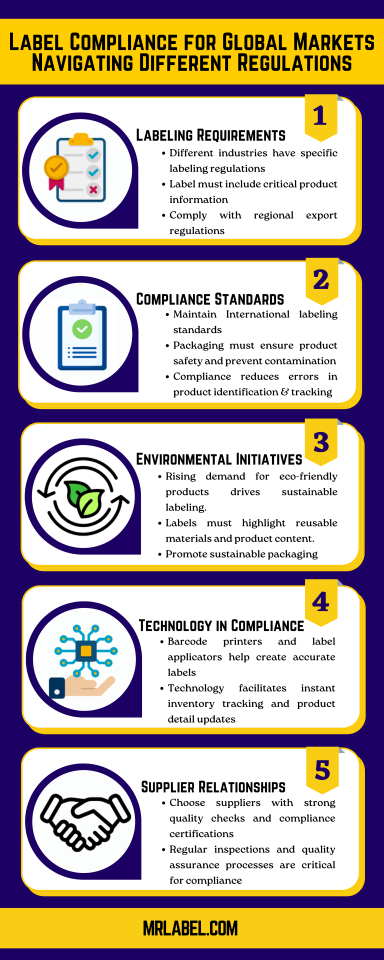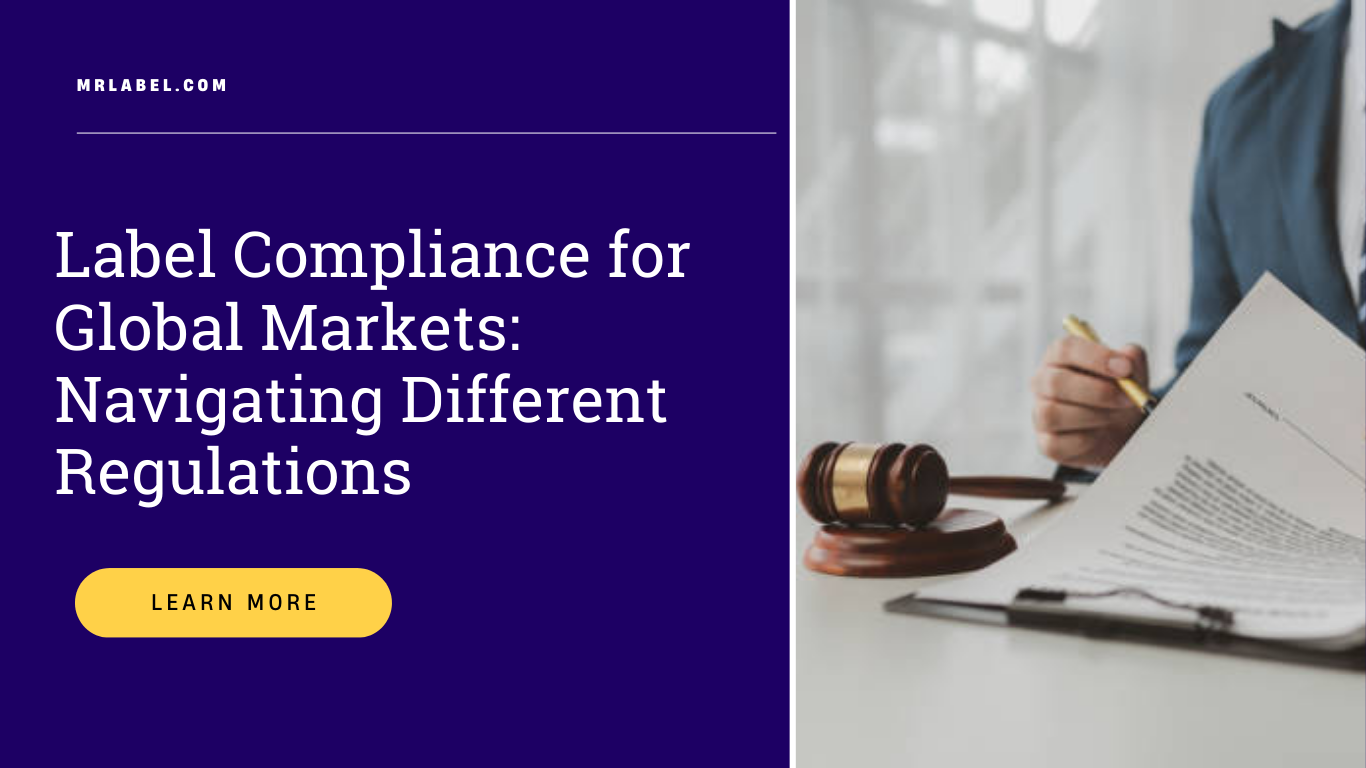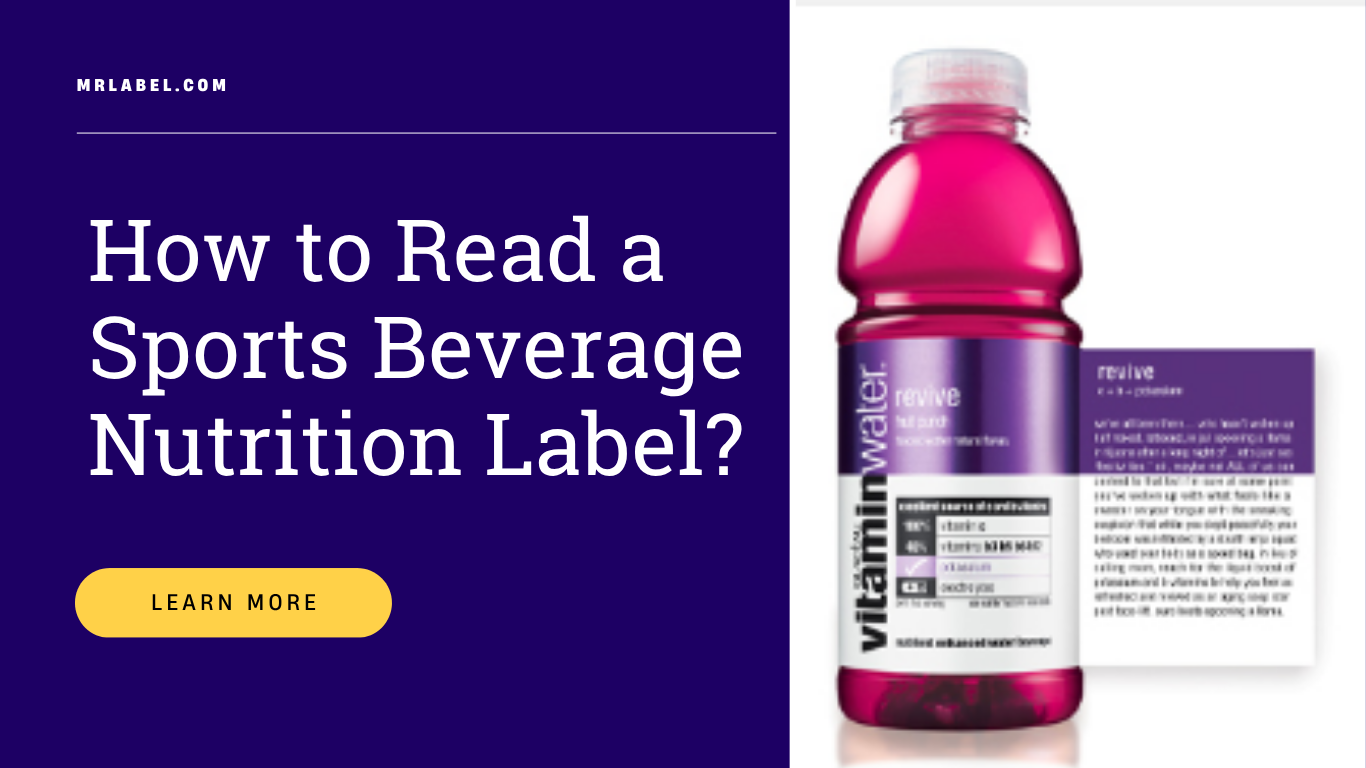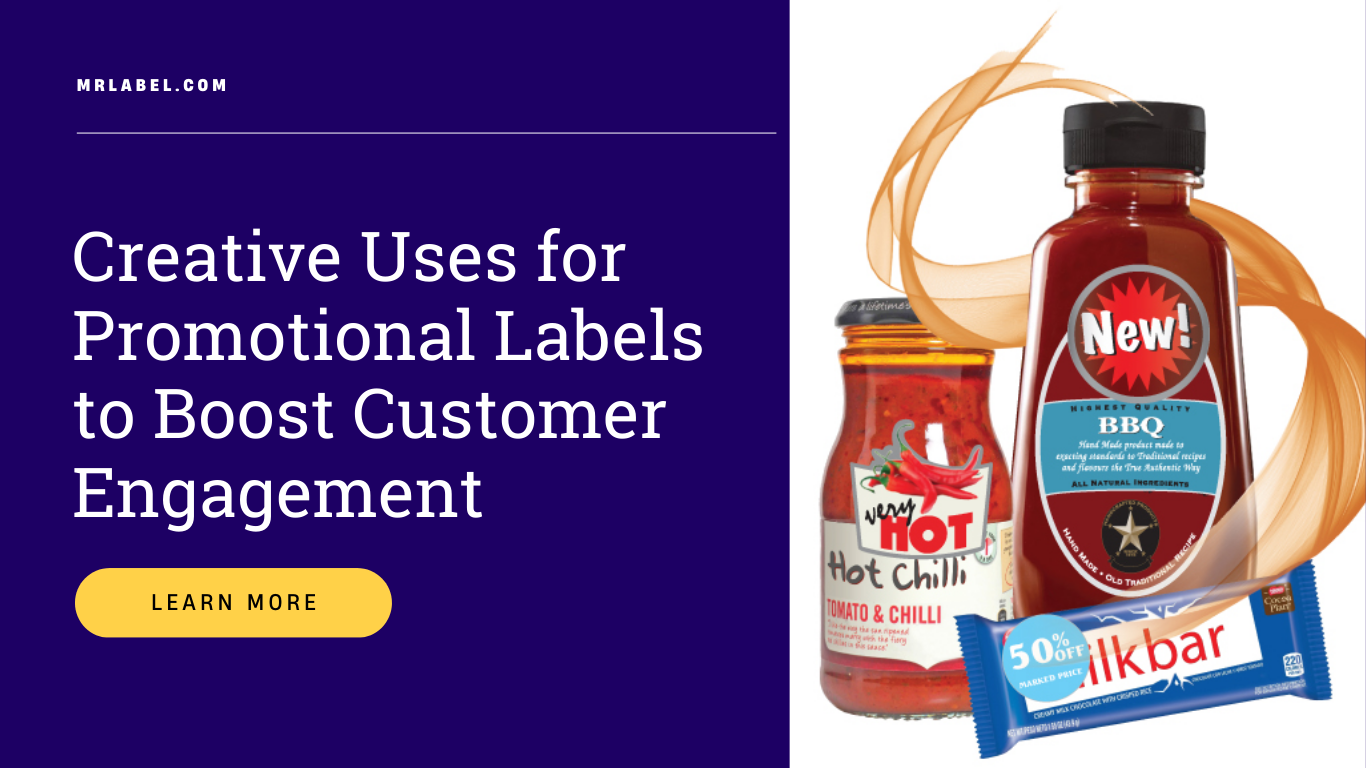The retail industry is quite dynamic and there are numerous products that are available in every region.
If a particular product is labeled in a local language and is exported to other regions, the manufacturer will have to ensure that users of a new market can access the information without any language barriers.
Moreover, there are certain regulations in the international market that require every product label to comply.
For example, the volume and mass units must be universal and so the label must have some primary information to ensure that every consumer can benefit from it. What is label compliance for global markets?
Let’s find out all about it to see how different regulations have to be followed.
Understanding Product Labeling Requirements
 Product labeling varies with the nature of the goods in question. For example, food items must get the FDA approval in the United States and textile items follow the labeling instructions from Federal Trade Commission.
Product labeling varies with the nature of the goods in question. For example, food items must get the FDA approval in the United States and textile items follow the labeling instructions from Federal Trade Commission.
The FDA underlines the need for mentioning expiration dates, ingredients and percentage of trace elements that can impact users.
Similarly, the FTC ensures every product has the details about fiber content, country or origin and instructions for care. Other goods such as chemicals and raw materials have particular labeling requirements as well.
When any of these products are exported to other places, the manufacturer must also keep the regulations of that region in mind.
In short, every product has to comply with global market regulations.
Environmental Initiatives
Another aspect of label regulations is that with time, every individual has become more conscious about the environment and they want to use eco-friendly products.
Meanwhile, every manufacturer is focusing on producing eco-friendly goods and the label has to mention this. The label must express use of sustainable and reusable materials, while revealing the content of the product.
We have seen a major shift in the way businesses use packaging and ingredients. Therefore, it is essential for all producers to label the product in full transparency and allow consumers to see what they will be buying and using. The eco-friendly manufacturers ensure that their products are highlighted and global market encourages this as well.
International Compliance
To ensure consistency and regulatory adherence, every manufacturer has to ensure that the labeling complies with international standards. As mentioned earlier, these standards are to ensure every consumer feels comfortable using a product due to complete disclosure of information.
There are international organizations like International Organization for Standards ISO and GS1 to maintain the standards of labeling and product quality.
All barcodes and labels must comply with the ISO instructions and all manufacturers must follow the instructions so that interoperability and traceability are maintained. Moreover, the chances of error in labeling are also canceled out by complying to the fundamental deliverables laid down by ISO.
According to global markets, packaging parameters are quite stringent. Every item must be safely packed to avoid contamination, maintain product quality, and protect consumers’ health. Key areas to focus on include:
- Food Contact Materials Regulations: Follow rules like the US FDA Food Contact Substance Notification Program and the EU Framework Regulation to ensure packaging materials are safe for human health.
- Tamper-Evident Packaging: Use packaging with tamper-evident features to prevent contamination or tampering during transport and storage, meeting standards set by agencies like the US FDA.
- Transportation and Handling: Ensure packaging can handle transportation and storage stress while keeping the product intact, following guidelines such as those from the International Safe Transit Association (ISTA). Strong quality assurance processes and regular inspections are critical to maintaining packaging compliance and protecting consumer safety.
Using Technology for Compliance
Technology has become an essential part of every business. Even if you are in production, you cannot ignore the impact of technology as it makes work more efficient.
Tools like barcode printers and label applicators allow retailers to create accurate labels, track inventory, and update product details instantly. Similarly, cloud-based labeling software provides a single platform to manage labeling tasks, work with suppliers, and ensure all products meet compliance standards. Label compliance for global markets becomes easier and more effective with these technologies.
Working with Reliable Suppliers
Every brand works well if they have a good consumer relationship. However, building relationships with trustworthy suppliers and manufacturers is key to staying compliant with labeling rules.
Without keeping a good relation, it becomes tough to stay abreast with all the developments and to ensure that every small mistake or error is rectified on time.
Choosing suppliers with strong quality checks and compliance certifications reduces the risk of errors and keeps the supply chain reliable. Clear communication and regular checks help strengthen these partnerships and encourage a compliance-focused approach across the supply chain.
Conclusion
Label complains for global markets is an essential that business owners must be aware of. We have discussed all details of global compliance which can help you understand what you would need to do so your business can thrive in all markets.
If you’re interested in learning more about our label services and would like us to provide you with a FREE quote, trust the experts at M&R Label to help you!
Call Us at (708) 534-6621 or Request a Quote!



